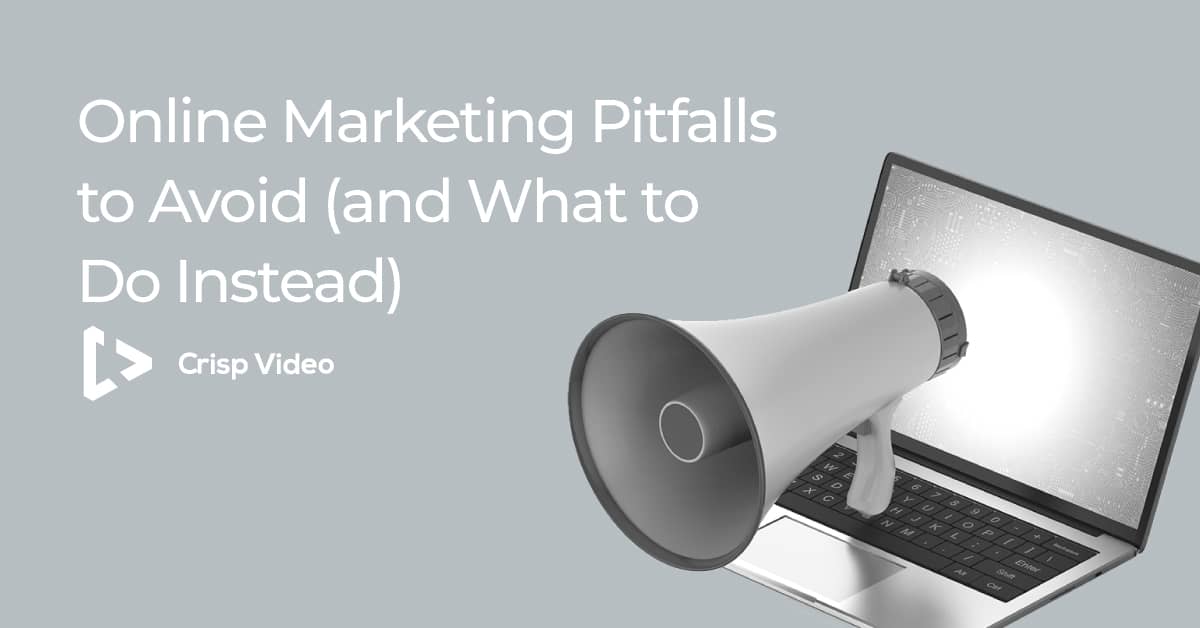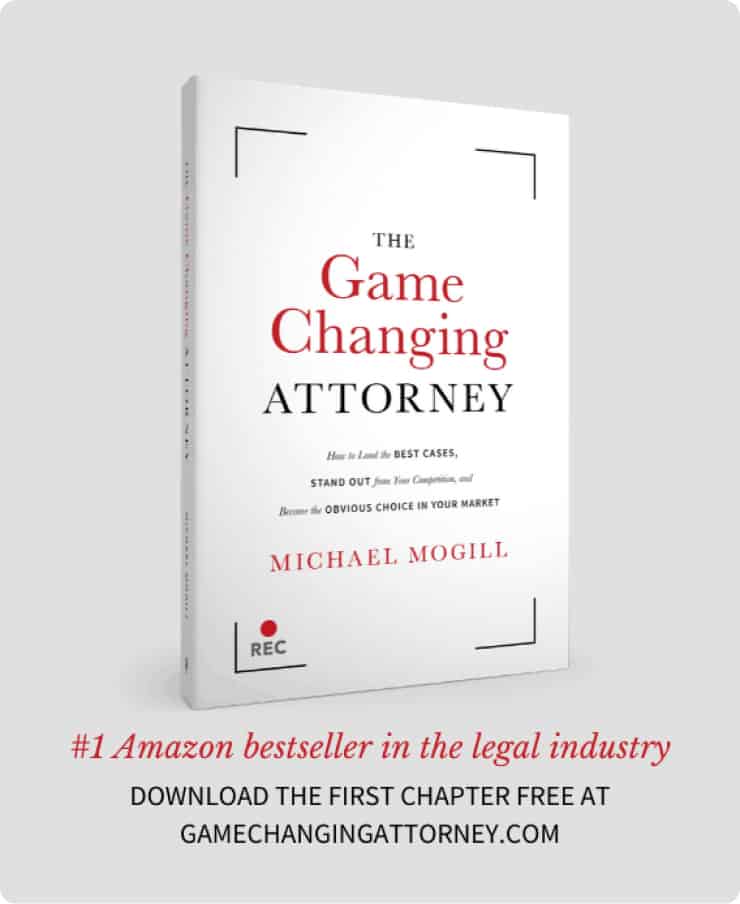Online marketing is an ever-changing minefield. The things that worked to grow a law firm even a year ago may not work anymore.
And, the fact is, law firm marketing may not even be your profession.
Most smaller law firms are marketed by the people who founded them — people who spent years learning how to be excellent lawyers, not learning how to run a social media ad campaign.
Needless to say, it’s easy to make a mistake when marketing your law firm online.
But mistakes can be costly. And, if you’re like most law firms, your marketing budget is already pretty thin on the ground.
This article will give you a guide to five of the top online marketing pitfalls that your law firm needs to avoid in order to grow.
We’ll cover the dangers of:
- Being afraid to spend money
- Failing to tell your story
- Failing to establish your objectives
- Spreading yourself too thin
- Focusing on vanity metrics
Marketing Pitfall #1: Being Afraid To Spend Money
We recognize the irony of telling you to spend money on digital marketing in an article about how dangerous it can be to invest in digital marketing.
But we want this message to come across clearly: without investment, you don’t grow. It’s that simple.
Inform yourself. Read articles like this one. Make sure you’re making the right decision before making it — but know that you have to make it.
Your firm won’t grow without an investment in online marketing. We’re past the days of handshakes and personal referrals being enough to keep a firm alive.
Marketing successfully is about tracking your return on investment. If you can spend a dollar and get two dollars back, you should invest everything you have in that strategy — because you’ll double everything you have.
A law firm example where spending money paid off:
Based out of South Carolina, Joe Good is an experienced attorney. His firm defends those accused of drug crimes, DUI, traffic offenses, and people who have suffered as a result of a car accident or job injury.
Like many of you, Joe knows that “Every day is a new challenge for a small firm.” (Source)
But he wasn’t afraid to spend in order to grow.
So he invested in a digital marketing campaign that combines video and social media advertising.
He was aware of the risk, but also the possible gain:

“I figured if I get one extra case a month, it will pay for itself. I got so many more than I thought.“
Joe’s campaign resulted in a 100% increase in his caseload.
Marketing Pitfall #2: Failing to Tell Your Story
What makes your law firm different from competitors?
If the first thought that ran through your head was your dedication to your clients, your years of experience, or your personal desire to help the little guy, you’re missing something.
That’s what every legal professional says.
What actually makes you different?
It’s you. It’s your personality. It’s your story, handshake, smile, quiet confidence, exuberance, laugh.
As Crisp Founder & CEO Michael Mogill says in his best-selling book The Game Changing Attorney, “Your clients aren’t simply buying legal services; they’re investing in you as a human being. If they can’t connect with you, if they don’t have a sense of what drives you, then they have no reason to hire you.”
One of the biggest pitfalls law professionals make is a belief that their resume alone will get them clients.
For a complete walkthrough of defining your unique value proposition, identifying your ideal client, and crafting a storytelling strategy that will attract more cases, check out our free download, The Storytelling Blueprint for Law Firm Marketing! This is an excellent starting point for leveraging the power of story to connect with prospective clients.
A law firm example where telling a story paid off:
Sherrod and Bernard is a personal injury law firm in Douglasville, Georgia, led by two university friends.
To tell their story, they invested in a brand video from Crisp.
In it, they talk about their origin story: how they met at the University of Georgia in 1982 and dreamed of becoming lawyers “to help the people that are our neighbors and friends right here in Douglasville and West Georgia.”
They tell their story, and the story of their firm. And it sets them apart.
You can see their video below:
Marketing Pitfall #3: Failing to Establish Your Objectives
What do you want to accomplish with online marketing?
And the answer can’t just be “I want to grow my firm.”
You have to get specific with your objectives, otherwise you’ll spread yourself too thin or spend money needlessly.
The fact is, different online marketing strategies can help you achieve different business objectives more effectively than others.
For instance, if you’re just focused on increasing awareness of your firm, investing heavily in email marketing won’t contribute to that goal. At the same time, while social media posting may be a great way to improve awareness of your firm, it’s less likely to directly convert leads into clients.
To avoid wasted marketing budget, you need to identify exactly what you’re looking to achieve and then identify the best online marketing strategy to achieve it.
An example where a law firm knew exactly what they wanted to achieve (and how to do it):
Warnken, LLC handles workers’ compensation cases, personal injury cases, and law enforcement matters in Baltimore.
Like many firms, Warnken only allocates about 4% of their revenue towards marketing, so managing attorney Byron Warnken had to be confident that his objectives would be met (and a positive ROI delivered) before investing in any online marketing strategy.
After attending the Crisp Game Changers Summit, he decided a high-quality brand video, alongside the Crisp Social Stack Program, could be the answer.
With full knowledge of what he wanted to achieve (and how to achieve it), the firm worked with Crisp to create a video with conversion in mind. They positioned it prominently on the firm’s website and built their client conversion funnel around it.

“Last year, we opened 689 cases. This year, to date, we have opened 549 cases, which projects to 932 cases opened for the year,” Byron explains. “About 17% of that growth is attributable to absorbing one lawyer’s small practice. The rest appears simply to be more effective marketing. The only substantial difference is Crisp Video and the Social Stack.” (Source)
If Warnken’s projections remain accurate, the firm is on track to see about $589,000 in increased revenue in the coming year: “If even just half of that is attributable to my increased conversion rates coming from video, Crisp added just shy of $295,000 to my revenue,” he says.
Marketing Pitfall #4: Spreading Yourself Too Thin
We touched on this pitfall above, but one of the biggest mistakes that inexperienced marketers make is that they try to do everything.
There’s so much to do, and you’re passionate about growing your business, so you try to do it all:
- You try to be on every social media platform (Facebook, LinkedIn, Twitter, Instagram, Pinterest, etc.)
- You blog multiple times a week
- You create webinars, podcasts, ebooks, and educational YouTube videos
- You redesign your website every month to optimize it for conversions
You try to juggle all of this — on top of running a law firm and trying cases.
One of the biggest pitfalls we see law firms fall into is misplaced enthusiasm.
You can’t do everything. You can’t give 100% to a dozen things.
You’ll end up burned out.
Our recommendation is this: Instead of giving 20% to five different online marketing strategies, give 100% to one. Test it completely, and if it doesn’t work, at least you know you gave it your all.
An example where a law firm focused on a single marketing strategy:
Berry Law Firm, a Veteran’s Disability Benefits Law Firm located in Lincoln, Nebraska, was struggling with a recurring problem: their clients didn’t know they had a case:
“The problem is most veterans get denied a claim by the VA and they think, ‘Well, there’s a lot of paperwork, I’ve been denied, I guess this is it, there’s nothing I can do.’ What they don’t understand is that often those decisions are wrong. They have a right to appeal and they have a right to hire an attorney.”
So, they could have chosen the “20% of five strategies” approach: blog on veteran’s rights, create Facebook posts, email their past clients and request they educate their fellow veterans, etc…
Or, they could identify the best way to educate the largest number of prospective clients, as well as how Berry Law Firm can help.
Video, alongside an aggressive social media advertising campaign, was the best way.
Alongside a great brand video, Berry Law Firm also created two high-quality educational videos. They used Facebook advertising to target them towards veterans.
Here’s their brand video:








